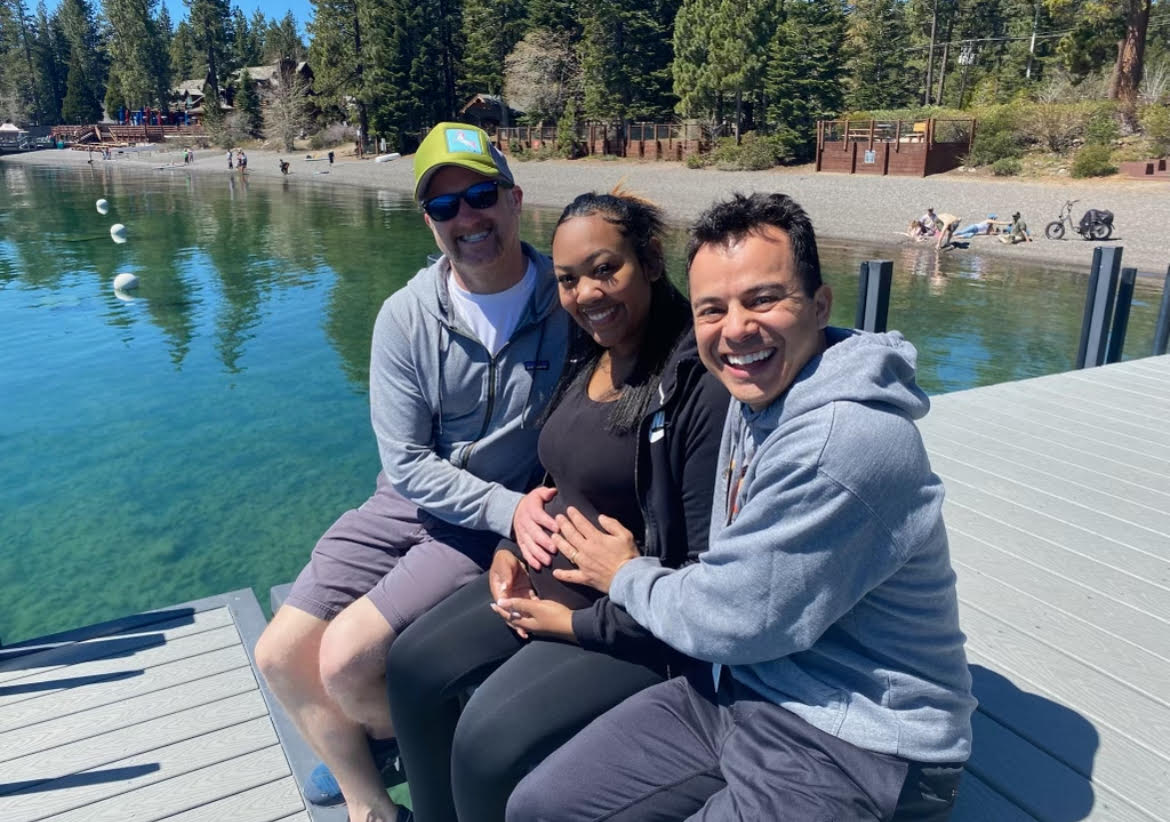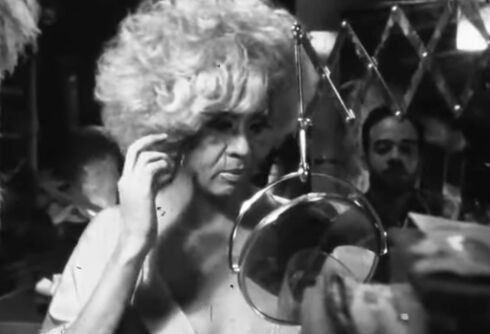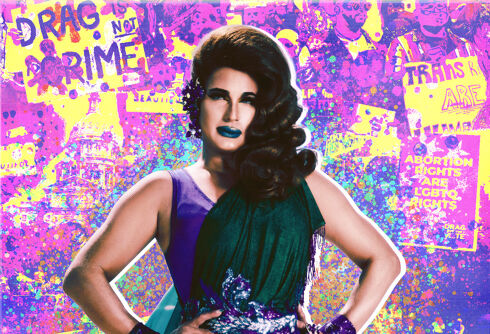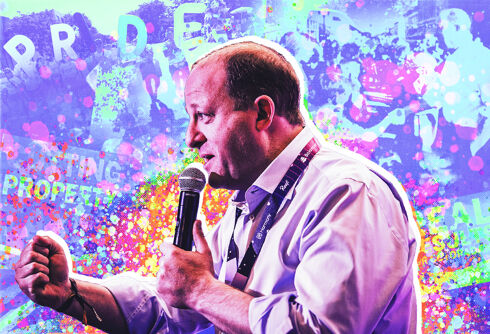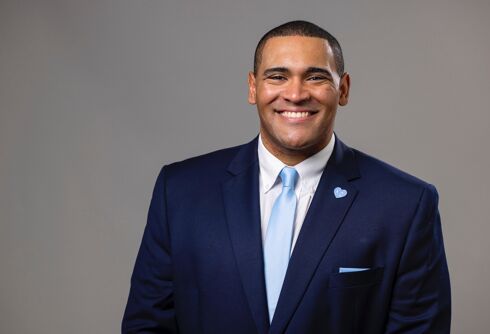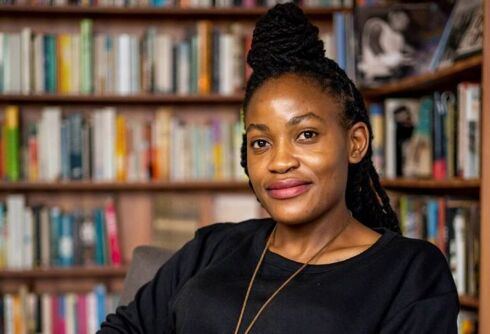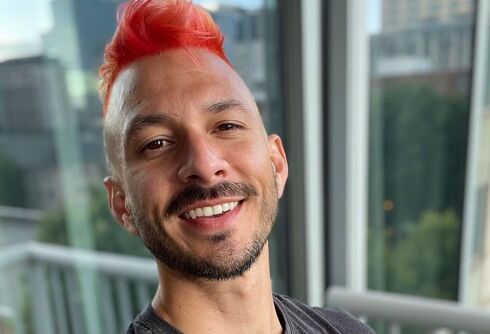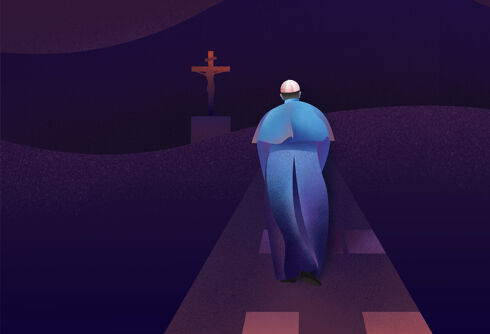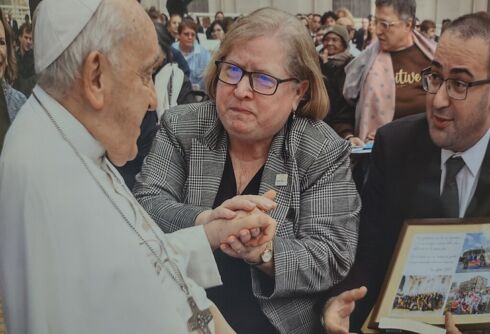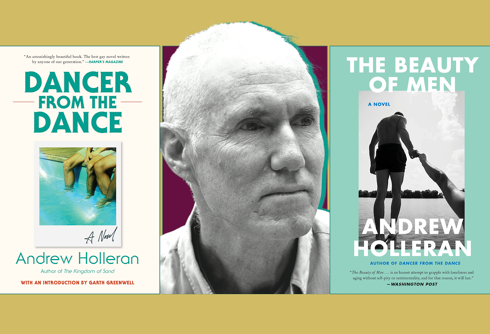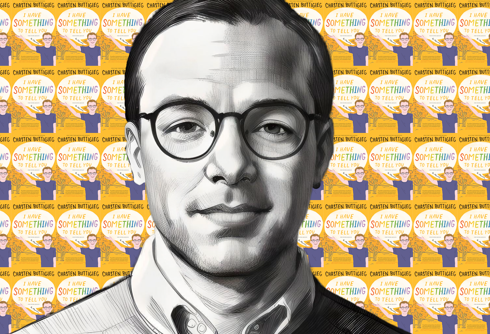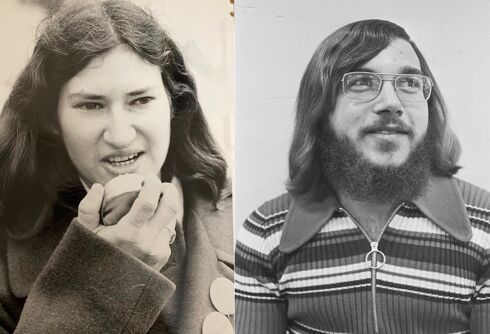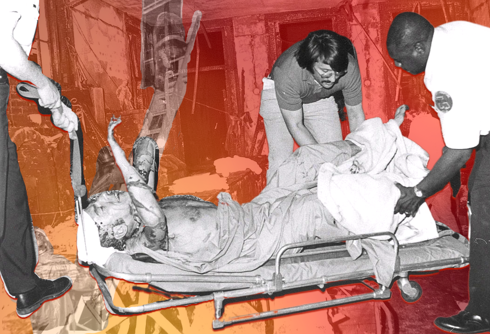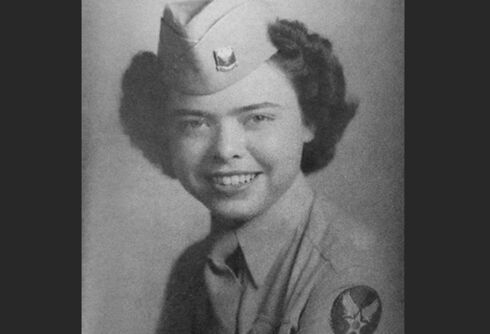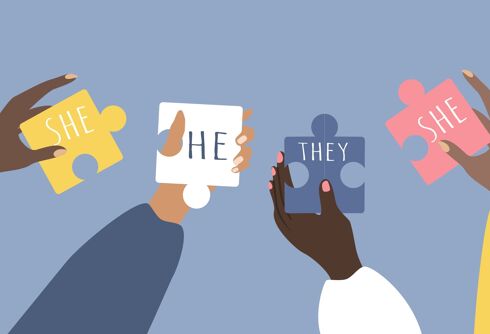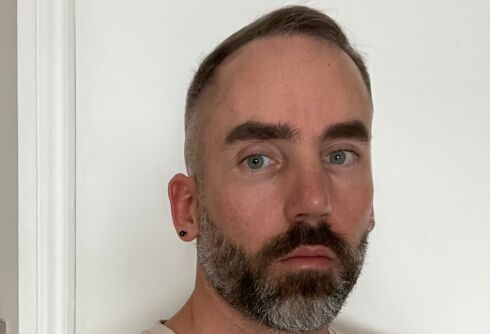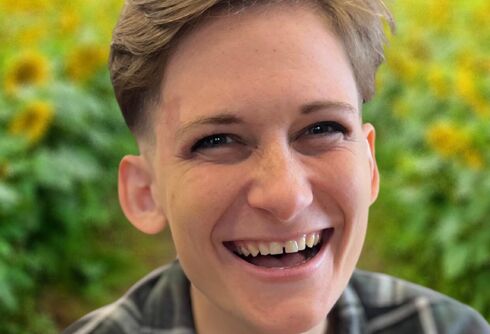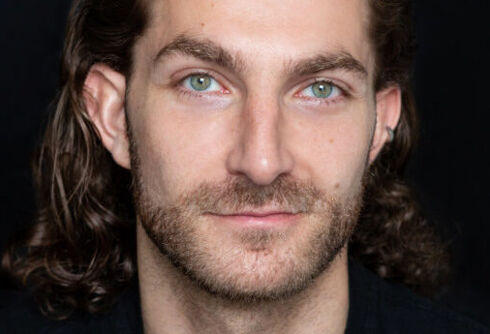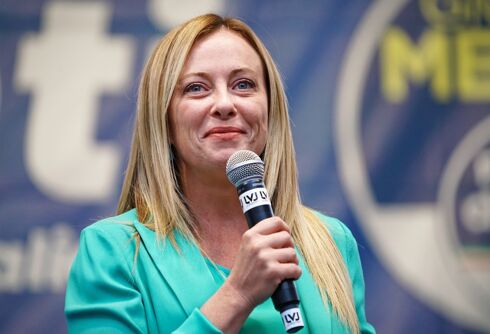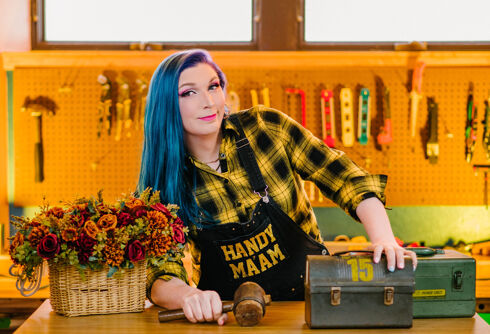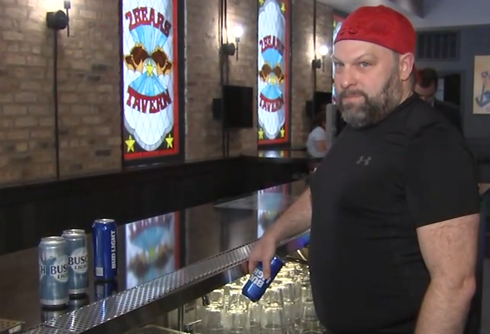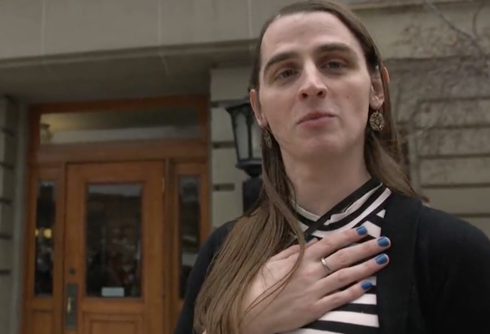When Zarah Hilliard gave birth to Randall Thomas and Daryl Garcia’s baby boy, she felt like a little kid waking up on Christmas morning. She described the culmination of her surrogacy journey as “amazing” and “breathtaking.”
“The dads’ faces immediately lit up,” she told LGBTQ Nation. “They started crying because they were so happy. And then I started crying… It fulfilled my heart so much that I’m going to do it again.
Related:
This gay man became a single father of twins after deciding to navigate surrogacy alone
“Stella and Mia are not just my children, they’re the center of my world.”
Hilliard knew since middle school that she’d one day become a surrogate. Her teacher at the time was carrying twins for a couple in Spain who had experienced years of infertility, and Hilliard was astounded by the process.
Never Miss a Beat
Subscribe to our newsletter to stay ahead of the latest LGBTQ+ political news and insights.
“Anybody who is willing to do that is a superhero,” she said.
At 21 – the minimum age allowed for surrogates in the United States – she began to pursue surrogacy more seriously. By that time she had also fulfilled another major requirement – having successfully carried her own child to term. Hilliard’s son was about four months old, and she was ready to get pregnant again for someone else this time.
She began researching agencies and knew her gut would tell her when she found the right one. SurrogateFirst made her feel welcome and prioritized. It was run by folks who had been surrogates themselves. It was perfect.
Through the matching process – which she likened to online dating – she found Thomas and Garcia. As a lesbian, she knew she wanted to carry for an LGBTQ+ couple. “I know how it is being part of the LGBTQ community,” she said, “how hard it is to want a baby and to want a family.”
Indeed, it is more difficult to be a gay couple seeking a surrogate than it is to be a straight couple or a single parent. SurrogateFirst’s 2023 State of Surrogacy report – based on survey responses from 168 people – found that 49% of surrogates were willing to work with a gay couple, compared to 76% willing to work with a so-called “traditional family” and 58% willing to work with a single parent.
Thomas and Garcia communicated in their profile that they wanted a surrogate who was interested in building a strong relationship with their family and who would want to remain in touch after the baby was born.
“They wanted somebody they felt really, really close to,” Hilliard said, “Which was the exact relationship I wanted with my intended parents… I see them as like, uncles now. I can go to them and talk to them, and we FaceTime… It’s an amazing relationship.”
The overwhelming world of surrogacy

Garcia and Thomas talked about having a child for at least ten years before they finally decided to take the plunge. But they had no idea where to start. Another couple advised them to attend a conference by Men Having Babies, an organization devoted to providing gay men with educational and financial support throughout the surrogacy process. They attended a conference in January 2020 and are not sure they would have ever moved forward without the boost it gave them.
“That was the catalyst that got us over the hump,” said Thomas. “I think going out and finding the pieces on our own just… I don’t know if it would have happened.”
Even so, they were overwhelmed when they first arrived at the event. “There was so much information coming at us about egg donors and lawyers and fertility clinics,” Thomas said, “and I think we both looked at each other at the end of the first day and were just like, oh, my gosh, how do you even put all the pieces together?”
But the second day felt easier. An expo featuring a variety of clinics and service providers ultimately brought them to SurrogacyFirst. Like Hilliard, they felt a connection with the team and were just as excited as Hilliard when they mutually selected one another.
“Everybody has their own style,” Thomas said, acknowledging the many families who decide not to maintain close relationships with their surrogate. “That just wasn’t something that we were personally looking for.”
Garcia described Hilliard as “still a part of our family.” After the embryo transfer, the couple even stayed at a hotel with Hilliard and her sister for a long weekend of lounging by the pool and getting to know one another better. While she was pregnant, she and her girlfriend joined the couple at their home for a weekend as well. Daryl said he loved getting “to show them our world.”
Throughout the pregnancy, Hilliard was pleasantly surprised at how involved the dads-to-be became in her life. They regularly flew out for her medical appointments, took her out for meals, and did whatever they could to make her comfortable.
Modern-day superheroes
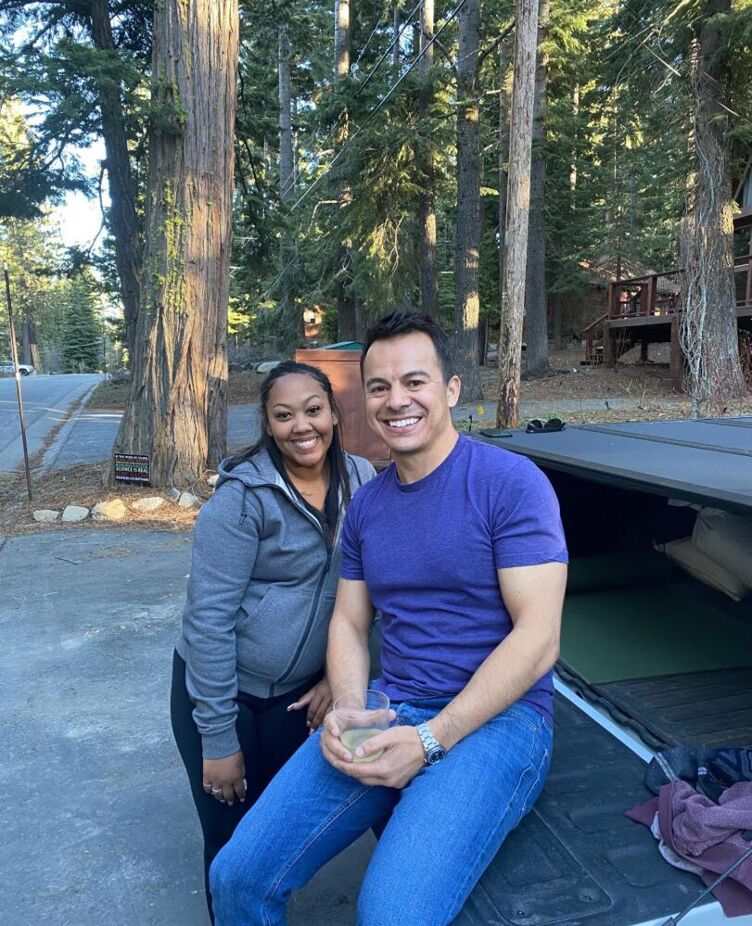
Hilliard gave birth to Thomas and Garcia’s son in 2022 and could not have been happier to see them become a family of three. Saying goodbye to the baby, she said, is not as hard as people think. In fact, it’s positively joyful.
“When you are going through surrogacy, your whole mindset is like, I’m going to have a baby, I’m going be pregnant, but this baby is not mine,” she said. “So your whole mindset, or at least mine, was that I’m just keeping this baby safe. I’m growing this baby for nine months, but then I’m returning this baby to the family that they’re supposed to be with. And it was beautiful.”
While some believe surrogacy is unethical or exploitative, surrogates tend to report satisfaction with the process – assuming they work with a reputable agency that treats them well. SurrogateFirst’s State of Surrogacy report found that eight out of ten surrogates report being “satisfied” or “very satisfied” with their journey. Eighty-three percent say they would do it again.
Hilliard has found another gay couple who wants to build a strong relationship, and she is currently in the early stages of her second surrogacy experience. She can’t wait to get started and gain two more uncle-like figures in her life.
She tells her story publicly for several reasons, she said. For one, she wants people in the LGBTQ+ community to “know that they can depend on surrogates.”
She also hopes to encourage more queer women and women of color to consider becoming surrogates. She thinks many folks don’t understand that their responsibilities end after the baby is born, and she wants to help more people learn what the process actually entails.
For Thomas and Garcia, sharing their story is all about making sure people understand the incredible nature of what surrogates do.
“It’s such a gift that Zarah gave us,” Garcia said. “It’s such a special journey. To have people take time out of their lives to give birth to your child, it’s just something else.”
The SurrogateFirst report found that the financial gain from surrogacy is not the number one or even the number two motivating factor for most surrogates. The first was a “desire to help a couple have a family,” and the second was a “calling to help others in need.”
“Zarah and other surrogates are just such special humans,” Thomas said, “I mean, it just blows me away… The financial benefit they gain is minimal compared to what they’ve shared with the world.”




